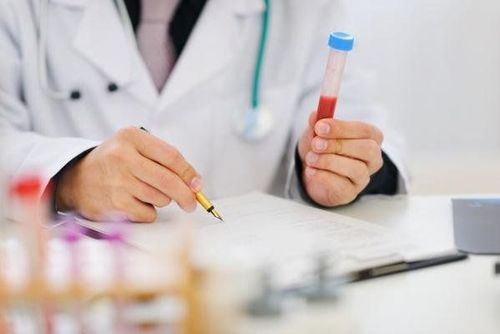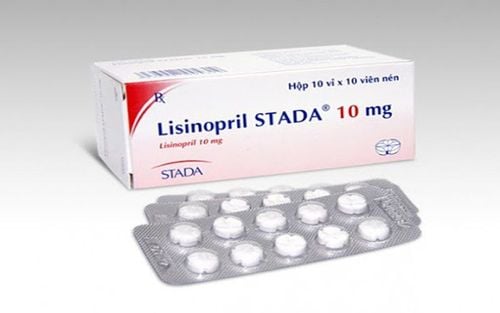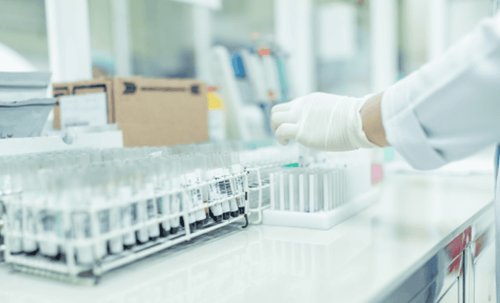This is an automatically translated article.
The article was professionally consulted by MSc Do Thi Hoang Ha - Doctor of Biochemistry, Laboratory Department - Vinmec Hai Phong International General HospitalElectrolytes in the body (Sodium, Potassium, Chlorine) are very important because they are the substances that cells (especially nerve, heart, and muscle cells) use to maintain voltages. on their cell membranes and carry electrical impulses (nerve impulses, muscle contractions) on themselves to other cells.
1. Electrolyte test
Electrolytes in the body include minerals and electrically charged fluids in the form of insoluble salts, the most important being sodium, potassium, and chloride ions. Electrolytes play an important role in maintaining homeostasis in the body, helping to regulate heart and nerve function, fluid balance, oxygen distribution, acid-base balance, and many other functions. again.Electrolyte imbalance is the occurrence of abnormalities in the concentration of electrolytes in the body. This imbalance can develop or progress faster by the following mechanisms: eating too much or reducing drinking or eliminating too much electrolytes so electrolyte levels in the body change. Quantifying the concentration of electrolyte ions in the body is important in determining the direction of treatment for patients with electrolyte disorders.

Ý nghĩa của xét nghiệm các chất điện giải được làm rõ qua các chỉ số trong bảng xét nghiệm chất điện giải
Electrolyte tests help doctors monitor and treat certain conditions such as hypertension, heart failure, liver and kidney disease, help determine the cause and treat to restore balance. by the proper electrolytes of the body.
2. Meaning of Electrolyte Indicators
2.1. Blood sodium disorders Normal blood sodium level is 135-145 mmol/l. Sodium is the major cation in extracellular fluid, along with chlorine, bicarbonate... plays an important role in regulating water balance and maintaining osmotic pressure for extracellular fluid. Sodium metabolism is influenced by the following factors:
Circulatory volume Extracellular fluid volume Adrenal cortex steroid hormone aldosterone. Hypothalamic hormone, antidiuretic ADH Hypernatremia
Including common causes such as:
Hyperadrenocorticism (Cushing's syndrome) and when treated with corticosteroids Primary aldosteronism (Cohn's syndrome) Diabetes pale, dehydrated. Consequences: Fluid retention, edema, increased blood pressure, can cause dehydration in the cells. Clinical symptoms: Thirst, weight loss, dry skin and mucous membranes, tachycardia, oliguria, may appear: fever, delirium, deep and rapid breathing, coma.

Natri máu mức bình thường là 135-145 mmol/l
Common causes such as:
Loss of salt through the gastrointestinal tract, urine, sweat (vomiting, burns, diarrhea, heatstroke, diabetes insipidus, excessive sweating...) Adrenal cortex (Addison's disease) Severe tubular damage, chronic kidney failure Consequences: Hyponatremia causes hypotonic interstitial fluid, water will enter cells, decrease blood volume, decrease blood pressure, possibly cardiovascular collapse, oliguria causing kidney failure, possibly brain edema...
Clinical symptoms; fear of water, loss of appetite, nausea, edema, fainting, dizziness, dry mucous membranes, tachycardia, orthostatic drop in blood pressure, oliguria, possible shock, convulsions, coma..
2.2. Disorders of blood potassium Blood potassium is normal at 3.5- 5.0 c. Potassium is considered the main cation in the cell, together with a number of other ions of the intracellular to create osmotic pressure for the intracellular. Potassium plays an important role in muscle contraction, nerve conduction, enzyme activity, and cell membrane function...
Myocardial excitability, conduction, and heart rate are markedly influenced by The change of K, Mg and Ca ions in the extracellular fluid. Increased or decreased extracellular potassium concentrations both decrease the excitability and conduction velocity of the myocardium.
High K concentration: reduces excitability, inhibits conduction, causes cardiac arrest in diastole. Low K concentration: increases excitability and causes cardiac arrest in systole. Abnormal potassium levels have an effect on the electrical potential of the myocardium, which is reflected in the electrocardiogram. High or low levels of K both damage the contraction of skeletal and smooth muscles, causing flaccid paralysis.
Hyperkalemia
Common causes such as:
Severe renal failure (acute or chronic) From the cells: anaphylaxis, severe trauma, severe burns, rhabdomyolysis... Metabolic acidosis Hemolytic inside and outside the body Adrenal failure (Addison's disease) Clinical symptoms: fatigue, flaccid paralysis, abdominal distention, diarrhea, effects on heart function (bradycardia, cardiac arrest...) and signs signs of damage to other organs such as kidneys...
Hypokalemia
Common causes such as:
Low intake (fasting, alcoholism, prolonged infusion without potassium...) Poor absorption Loss many: due to the gastrointestinal tract (vomiting, diarrhea), due to some kidney diseases (interstitial kidney disease), through the skin (burns) ... Westphal hereditary cyclic paralysis When treated with corticosteroids, diuretics prolonged urination Clinical symptoms: fatigue, muscle weakness, decreased reflexes, flaccid paralysis, decreased bowel motility, nocturia...
2.3. Blood Chlorine Disorders Normal blood chlorine is 90-110 mmol/l. Chlorine is a major anion of extracellular fluid, which, along with other ions, helps to create the body's osmotic pressure. Chlorine participates in maintaining charge neutrality by counterbalancing cations such as sodium, so changes in chlorine concentration are often accompanied by corresponding changes in sodium concentration.
Hyperchloremia
Common causes such as:
Severe dehydration Adrenal hypertrophy insipidus Diabetes insipidus Increased osmotic pressure in diabetes Acute renal failure Hypochloremia
Common causes:
Due to binge eating Loss salt Adrenal cortex insufficiency Acute infections Customers can directly go to Vinmec Health system nationwide for examination or contact the hotline here for support.














